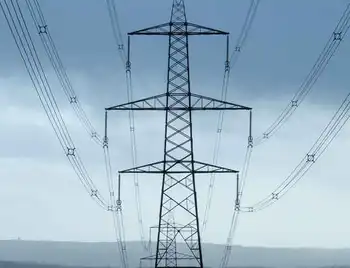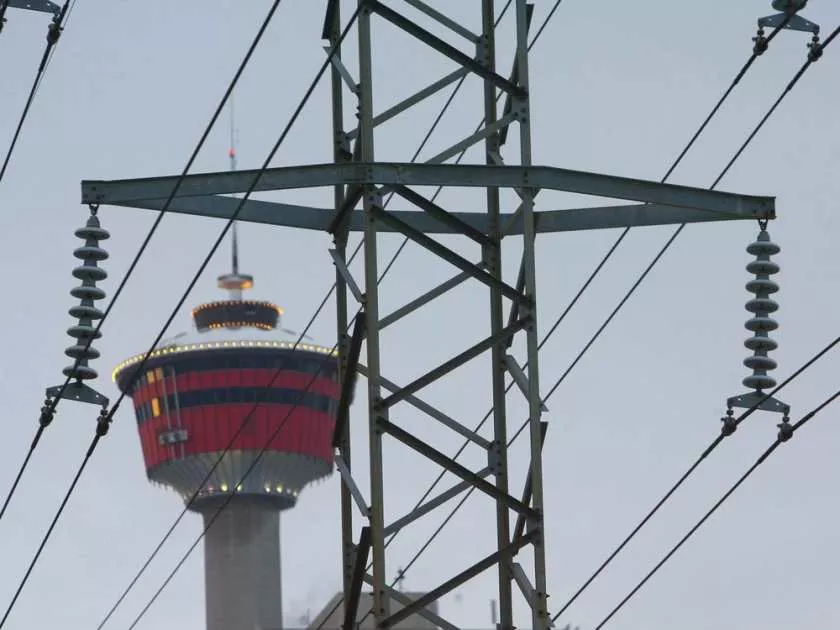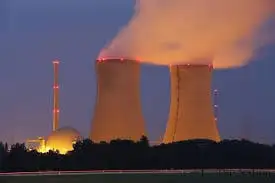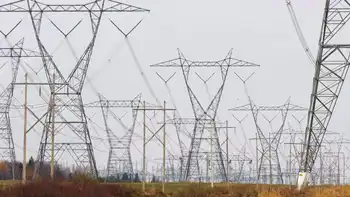Shenao Power Plant Controversy intensifies as the EPA, Taipower, and New Taipei officials clash over EIA findings, a marine conservation area, fisheries, public health risks, and protests against a coal-fired plant in Rueifang.
Key Points
Dispute over coal plant EIA, marine overlap, and health risks, pitting EPA and Taipower against New Taipei and residents.
✅ EPA approved EIA changes; city cites marine conservation conflict
✅ Rueifang residents protest; 400+ signatures, wardens oppose
✅ Debate centers on fisheries, public health, and coal plant impacts
The controversy over the Shenao Power Plant heated up yesterday as Environmental Protection Administration (EPA) and New Taipei City Government officials quibbled over the project’s potential impact on a fisheries conservation area and other issues, mirroring New Hampshire hydropower clashes seen elsewhere.
State-run Taiwan Power Co (Taipower) wants to build a coal-fired plant on the site of the old Shenao plant, which was near Rueifang District’s (瑞芳) Shenao Harbor.
The company’s original plan to build a new plant on the site passed an environmental impact assessment (EIA) in 2006, similar to how NEPA rules function in the US, and the EPA on March 14 approved the firm’s environmental impact difference analysis report covering proposed changes to the project.
#google#
That decision triggered widespread controversy and protests by local residents, environmental groups and lawmakers, echoing enforcement disputes such as renewable energy pollution cases reported in Maryland.
The controversy reached a new peak after New Taipei City Mayor Eric Chu on Tuesday last week posted on Facebook that construction of wave breakers for the project would overlap with a marine conservation area that was established in November 2014.
The EPA and Taipower chose to ignore the demarcation lines of the conservation area, Chu wrote.
Dozens of residents from Rueifang and other New Taipei City districts yesterday launched a protest at 9am in front of the Legislative Yuan in Taipei, amid debates similar to the Maine power line proposal in the US, where the Health, Environment and Labor Committee was scheduled to review government reports on the project.
More than 400 Rueifang residents have signed a petition against the project, including 17 of the district’s 34 borough wardens, Anti-Shenao Plant Self-Help Group director Chen Chih-chiang said.
Ruifang residents have limited access to information, and many only became aware of the construction project after the EPA’s March 14 decision attracted widespread media coverage, Chen said,
Most residents do not support the project, despite Taipower’s claims to the contrary, Chen said.
New Power Party Executive Chairman Huang Kuo-chang, who represents Rueifang and adjacent districts, said the EPA has shown an “arrogance of power” by neglecting the potential impact on public health and the local ecology of a new coal-fired power plant, even as it moves to revise coal wastewater limits elsewhere.
Huang urged residents in Taipei, Keelung, Taoyaun and Yilan County to reject the project.
If the New Taipei City Government was really concerned about the marine conservation area, it should have spoken up at earlier EIA meetings, rather than criticizing the EIA decision after it was passed, Environmental Protection Administration Deputy Minister Chan Shun-kuei told lawmakers at yesterday’s meeting.
Chan said he wondered if Chu was using the Shenao project for political gain.
However, New Taipei City Environmental Protection Department specialist Sun Chung-wei told lawmakers that the Fisheries Agency and other experts voiced concerns about the conservation area during the first EIA committee meeting on the proposed changes to the Shenao project on June 15 last year.
Sun was invited to speak to the legislative committee by Chinese Nationalist Party (KMT) Legislator Arthur Chen.
While the New Taipei City Fisheries and Fishing Port Affairs Management Office did not present a “new” opinion during later EIA committee meetings, that did not mean it agreed to the project, Sun said.
However, Chan said that Sun was using a fallacious argument and trying to evade responsibility, as the conservation area had been demarcated by the city government.
Related News












